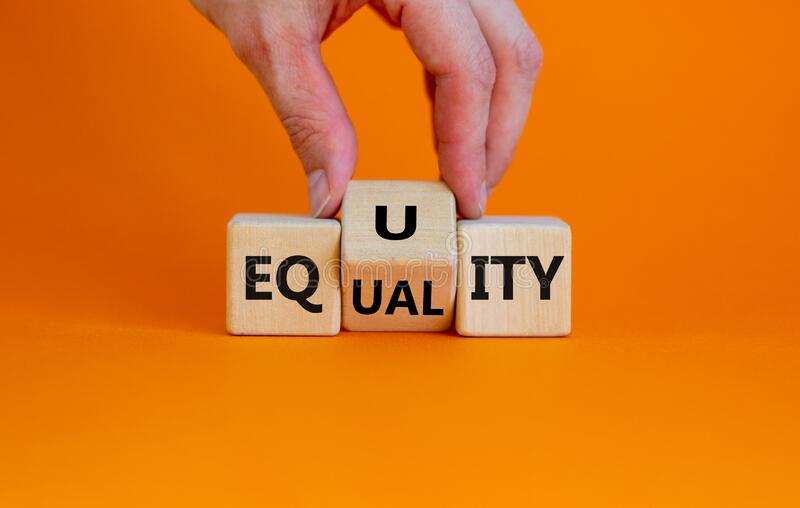As more workplaces learn about issues related to diversity and determine how to solve them, many leaders must work to keep up with the changes. Not only do they need to take time to learn more about the various cultural, ethnic, spiritual and sexual identities that make up their workforces, but they should also learn how to talk about them in a meaningful way.
However, some of the terminology can be confusing. For example, understanding equity vs. equality in the workplace is key to knowing what steps need to be taken to ensure a fair situation for all. What is the difference between equity and equality, and why does it matter for your organization? What are some examples of equity vs. equality in the workplace? Here’s what you need to know.

Contact CoachDiversity Institute today for executive 1-on-1 coaching, corporate diversity training, and more! For more information, see our different packages.
Understanding Equality
At its core, equality in the workplace means treating every employee the same. In an equal work environment, every person in the workplace is held to the same standards, follows the same rules and receives the same consequences if they fall short of expectations. One example of this idea of equality in the workplace is an office in which all staff members receive the same holidays off — New Year’s, Easter, Fourth of July, Thanksgiving and Christmas — in addition to a bank of flexible PTO days.
Understanding Equity
On the other hand, equity in the workplace is recognizing that treating people fairly does not always mean giving everyone identical benefits. In the previous example of equality in the workplace, those who do not celebrate Easter or Christmas as religious holidays may find the vacation policy insufficient. An alternative example of equity in the workplace would involve giving all employees the same number of holiday and PTO days that they could use at their discretion. This policy takes into account the fact that people with different backgrounds will have different needs.
Equity vs. Equality in the Workplace: What Makes Them Different?
Even though equality and equity are often used interchangeably, they are not the same idea. Equality means everyone should be treated equally under the existing culture in your workplace. Equity is knowing that certain members of your staff come to work each day with different requirements that need to be accommodated before they can receive equal treatment.
Example of Equity vs. Equality in the Workplace
Examples of equality vs. equity in the workplace can be as simple as the procurement of office supplies. The idea of equal treatment would mean everyone gets what they need to perform their jobs effectively and comfortably. Although some administrators might assume this would involve giving every member of the team identical desks, this does not account for any employees with special needs.
For instance, someone confined to a wheelchair may need an adjustable desk to better accommodate him or her. Even though this means he or she does not have the same desk as everyone else, it is exactly what he or she needs to have the same opportunities as the rest of your staff.
How to Ensure Employee Equity at Your Company
Now that you know a bit more about what makes equity and equality in the workplace different, how can you go about creating an environment that features both in a meaningful way?
There are several initiatives you can employ to accomplish this, such as introducing more diversity in your interview panels. Reviewing your handbook and other onboarding materials for exclusionary language is another step in the right direction. One successful strategy used by numerous employers is the creation of resource groups that provide employees with the opportunity to share their experiences with co-workers.
When examining your company’s benefits packages, consider whether they take into consideration the various possibilities of a person’s situation. For instance, employees with small children may need some flexibility when scheduling their workdays. Married couples should have the opportunity to share health insurance benefits regardless of sexual identity.
Let CoachDiversity Institute Show You the Way
At CoachDiversity Institute, we offer a range of coaching programs designed to help employers build more inclusive and diverse cultures within their organizations. These include our Foundational Coach Training program, which emphasizes the importance of equity in the workplace. If you would like to learn more about what we have to offer, get in touch with us today.
